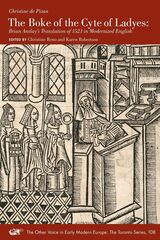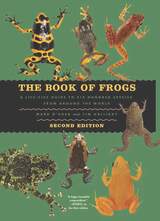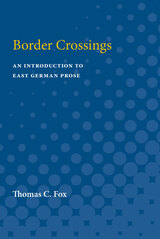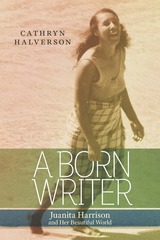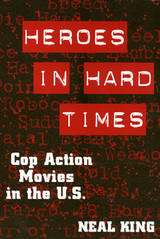
King studies how, in the cop action genre, working-class police officers weigh in on such topics as racial justice, homosexuality, misogyny, unemployment, worker resistance, affirmative action, drug use, poverty, divorce, and the use of violence to deal with social problems. Facing their enemies with wisecracks and firepower, these men prove themselves at once complicitous in a system of violence and corruption and worthy to "blow away," with neither hesitation nor remorse, their -- society's -- menacing threats. The central male figures in these stories are heroes in their fight against criminals, but, as individuals, they fell undervalued by women, unappreciated by their bosses, and out of place in a society where fat cats and liberals have all the power. Such "hard times," King's study reveals, position them to simultaneously long for, disdain, and heroically -- if violently -- stake their frustrated claim to white male privilege.
Discussing such topics as white male guilt and the rage of the oppressed and examining such films as Lethal Weapon, Die Hard, and Silence of the Lambs, King's book notes the socially-charged roles given to American culture's fictional police heroes. The last artisan in a culture that has become increasingly corporate and bureaucratized, the movie cop is the last 'real man' in a world that has emasculated men and the last non-conforming patriot in a world that pays more attention to rules than what is morally right.
A book that shows how modern mythology makes sense of rampant corruption (and provides entertainment in its punishment), Heroes in Hard Times will educate and provoke those interested in American popular culture, film, and gender studies.
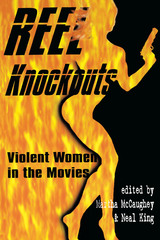
When Thelma and Louise outfought the men who had tormented them, women across America discovered what male fans of action movies have long known—the empowering rush of movie violence. Yet the duo's escapades also provoked censure across a wide range of viewers, from conservatives who felt threatened by the up-ending of women's traditional roles to feminists who saw the pair's use of male-style violence as yet another instance of women's co-option by the patriarchy.
In the first book-length study of violent women in movies, Reel Knockouts makes feminist sense of violent women in films from Hollywood to Hong Kong, from top-grossing to direct-to-video, and from cop-action movies to X-rated skin flicks. Contributors from a variety of disciplines analyze violent women's respective places in the history of cinema, in the lives of viewers, and in the feminist response to male violence against women. The essays in part one, "Genre Films," turn to film cycles in which violent women have routinely appeared. The essays in part two, "New Bonds and New Communities," analyze movies singly or in pairs to determine how women's movie brutality fosters solidarity amongst the characters or their audiences. All of the contributions look at films not simply in terms of whether they properly represent women or feminist principles, but also as texts with social contexts and possible uses in the re-construction of masculinity and femininity.
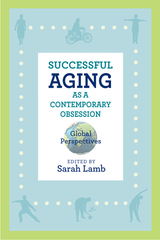
The contributors to Successful Aging as a Contemporary Obsession explore how the successful aging movement is playing out across five continents. Their chapters investigate a variety of people, including Catholic nuns in the United States; Hindu ashram dwellers; older American women seeking plastic surgery; aging African-American lesbians and gay men in the District of Columbia; Chicago home health care workers and their aging clients; Mexican men foregoing Viagra; dementia and Alzheimer sufferers in the United States and Brazil; and aging policies in Denmark, Poland, India, China, Japan, and Uganda. This book offers a fresh look at a major cultural and public health movement of our time, questioning what has become for many a taken-for-granted goal—aging in a way that almost denies aging itself.
READERS
Browse our collection.
PUBLISHERS
See BiblioVault's publisher services.
STUDENT SERVICES
Files for college accessibility offices.
UChicago Accessibility Resources
home | accessibility | search | about | contact us
BiblioVault ® 2001 - 2025
The University of Chicago Press


